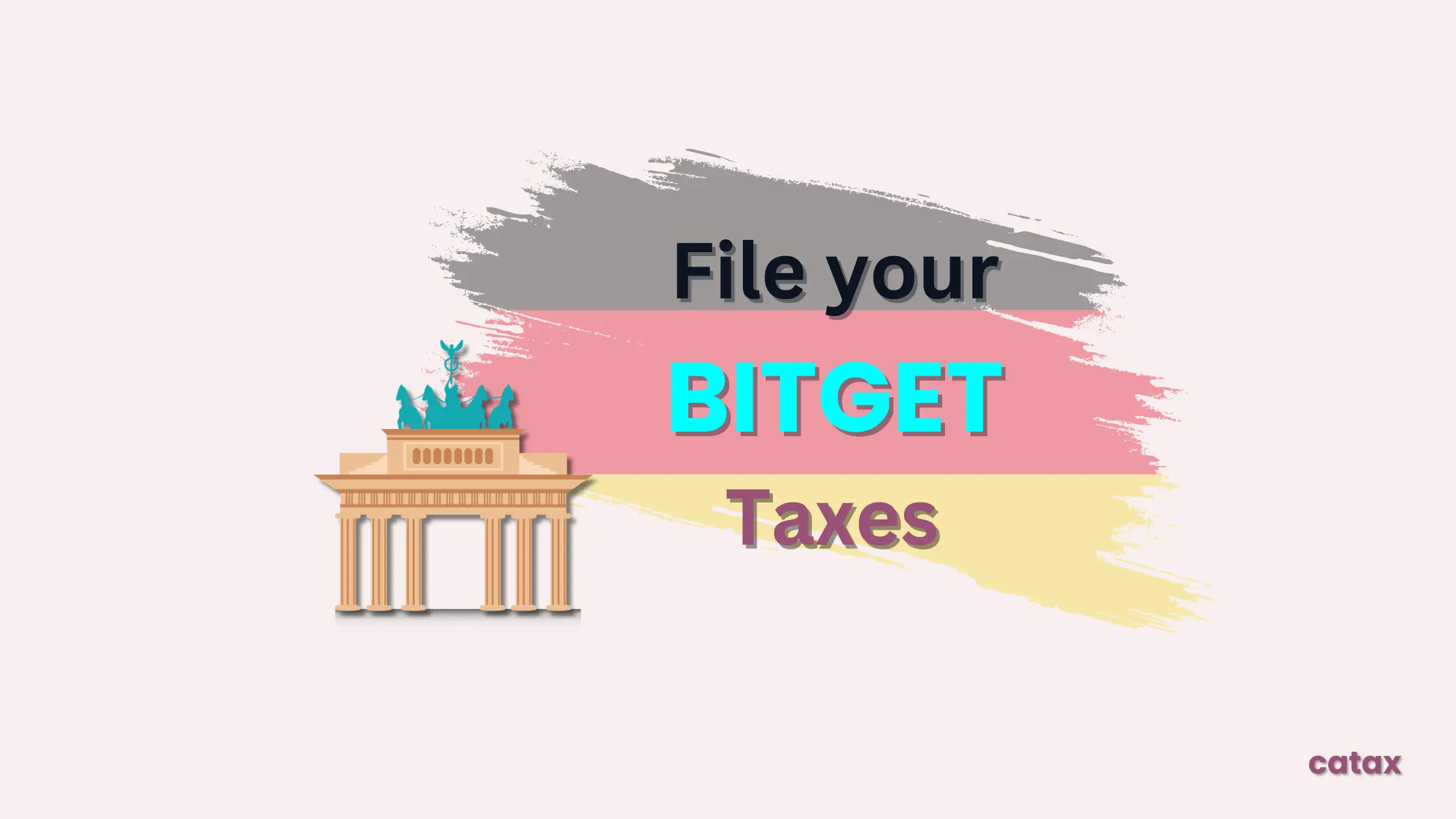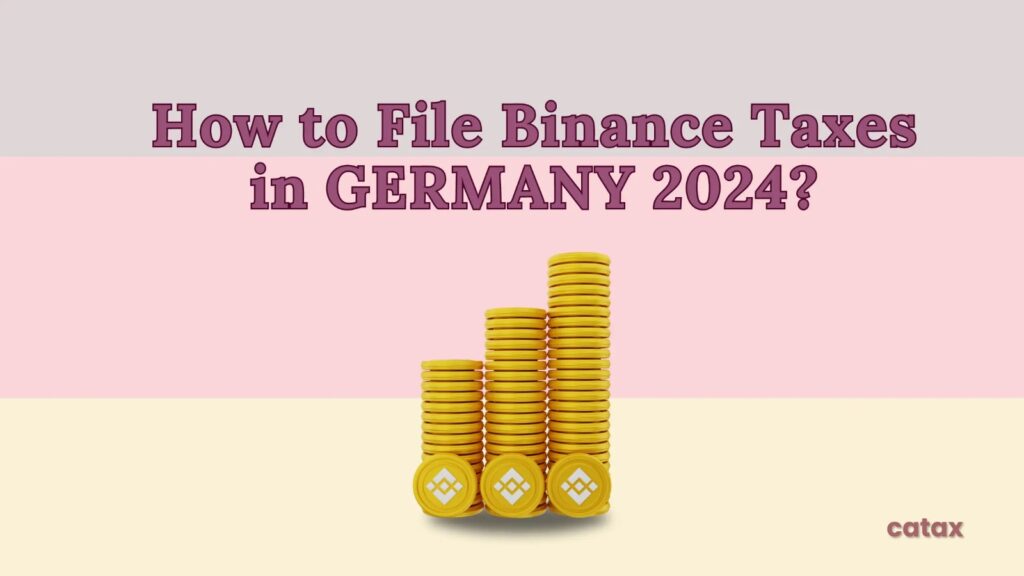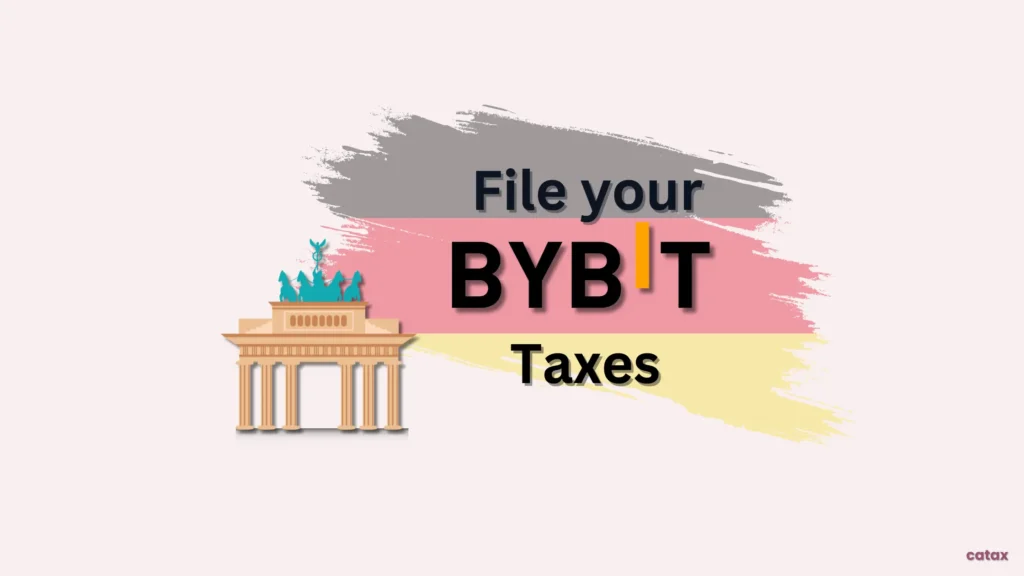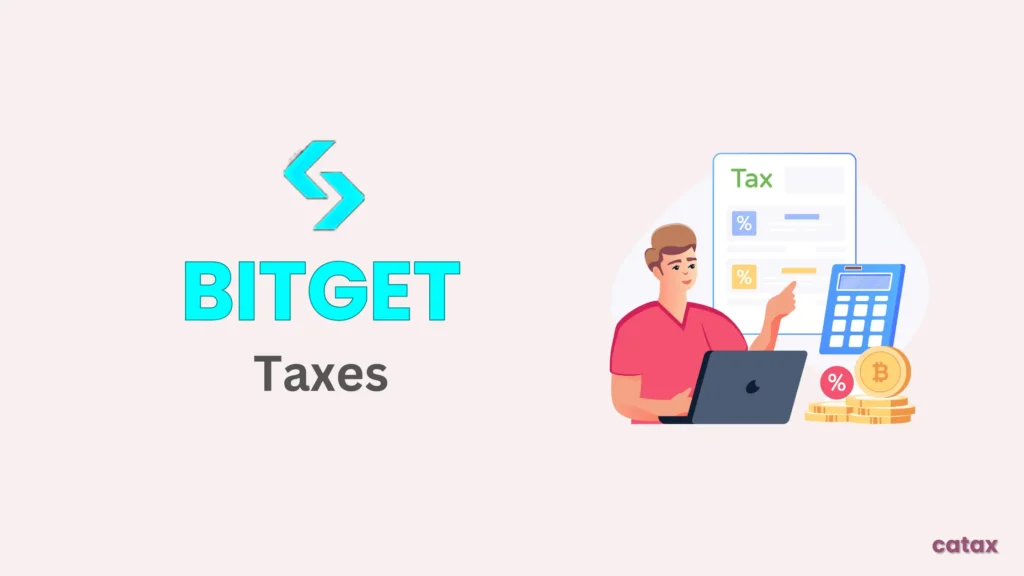This guide makes it easy to understand and calculate your Bitget taxes in Germany. It provides straightforward instructions, helping you get through the process accurately and without hassle.
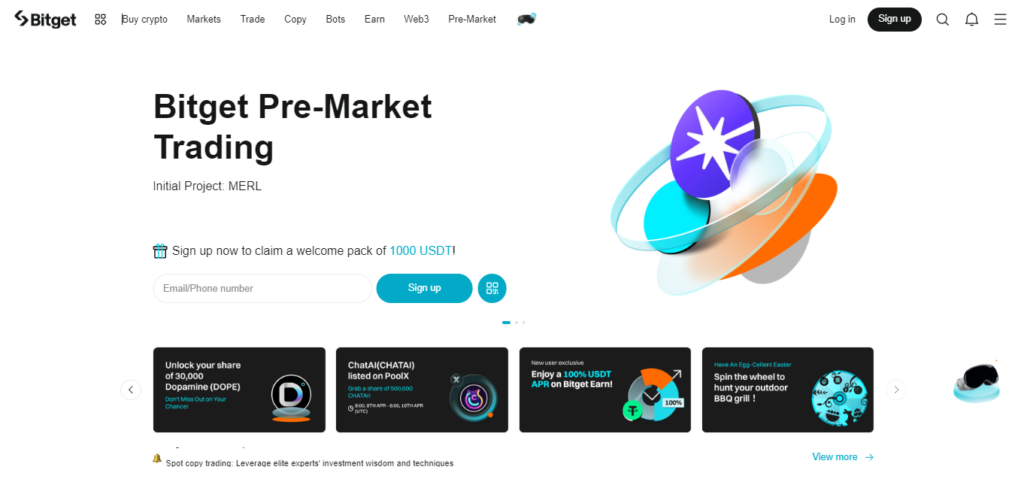
How can Catax help you with your Bitget taxes in Germany?
When you need to handle your taxes for Bitget in Germany, it’s really helpful to have someone who understands crypto taxes by your side. More experts are popping up because more people are investing in crypto and using it in everyday life.
Catax is a great choice if you’re a crypto user in Germany. They’re experts at turning your crypto transactions from Bitget into euros, which you need for your tax forms.
Using Catax is easy. You just link your Bitget account to their system, and they automatically keep track of your trades. Their goal is to make sure your crypto tax calculations are accurate and stress-free.
Catax also provides clear steps on how to connect your Bitget account with their services, ensuring your tax reports are thorough and correct.
Plus, Bitget offers a free tax calculator for Germany, which is super handy. It quickly estimates your tax based on your trading, saving you time and giving you a preview of what you might owe.
So, finding the right help and tools is key to managing your Bitget crypto taxes effectively. With experts like Catax and resources like Bitget’s tax calculator, you can confidently take care of your taxes.
Do Bitget Users in Germany Get Tax Info Sent to the Tax Office?

In Germany, Bitget doesn’t send tax reports directly to the German Federal Central Tax Office (BZSt).
Although Bitget follows KYC (Know Your Customer) rules and collects your information, they don’t have to send it to tax authorities like the BZSt automatically. But, you still need to report your crypto transactions on your tax return in Germany.
Here’s what you need to know:
- Taxes on crypto gains: If you profit from selling crypto, earn more than €2,500 per year from staking, get airdrops counted as income, or use crypto to buy goods or services, you must report these on your tax return.
- Your responsibility: You need to keep detailed records of your crypto transactions. The German tax office (Finanzamt) may ask Bitget for your transaction data if they suspect you’re not reporting your taxes correctly. It’s up to you to track and report your crypto activities.
- Tax tools from Bitget: Bitget provides a “Tax Tool” to help you download your transaction history and figure out your gains or losses. This tool is helpful but not enough for proper tax filing. You can use this data with third-party crypto tax software to make filing easier.
It’s a good idea to talk to a tax advisor who knows about crypto taxes to make sure you follow all rules and avoid any penalties.
How does the German tax office use data from Bitget?
The German tax office reviews data from Bitget to ensure everyone pays the right taxes on earnings from cryptocurrency transactions like Bitcoin. Unfortunately, As countries enforce stricter crypto taxation, staying updated through the tax office is wise. Consulting a tax expert on Germany’s crypto regulations is also advisable.
Can the German tax office track my crypto?
Yes, the tax office uses methods to monitor crypto transactions to ensure taxes are paid and to prevent crimes like money laundering. Germany mandates that crypto companies record transactions for verification. If you make money from crypto, like through trading or mining, you might owe taxes on that income. The amount of tax depends on how you got the crypto and how long you’ve held it.
What taxes do I have to pay for trading on Bitget in Germany?
When trading on Bitget in Germany, you’ll need to pay taxes on any profits you make. The amount of tax depends on how long you keep your crypto and how often you trade. It’s important to report your crypto trades to the tax office when you do your taxes to avoid penalties. A tax expert who understands crypto can help you make sure you’re doing everything correctly.
Simplify Your Bitget Taxes Reporting with Catax
Catax can help make reporting your Bitget taxes in Germany much simpler. It gathers all your Bitget transactions in one place and figures out your gains and losses. Showing you exactly how much tax you owe. Catax works with many other wallets and exchanges too, and it all happens automatically. You can even try it out with a free preview report from Catax to see how it works.
Understanding Taxes on Cryptocurrency in Germany
In Germany, when you make money from cryptocurrencies, you need to pay a tax called capital gains tax. How much tax you pay depends on how long you’ve held the cryptocurrency and how often you trade. Here’s a simple breakdown of the tax rates:
- If you hold for less than 1 year: You pay the same rate as your regular income tax. which can be as high as 45%.
- If you hold for more than 1 year: You don’t have to pay any tax on the first €600 you earn each year. After that, the tax rate is between 0% to 25%, depending on your total income.
People who trade a lot, like daily or weekly. Might have to pay higher taxes because their earnings might be seen as business income. It’s important to keep track of all your transactions. Including how much you gained or lost, and report them when you file your yearly taxes.
Getting advice from a tax professional can help make sure you follow the rules and pay the right amount of tax.
How Can I Reduce My Bitget Crypto Taxes in Germany?

In Germany, there are a few legal ways you can lower the taxes you pay on your crypto:
- Hold Your Crypto Longer: If you keep your crypto for more than a year before you sell it, you won’t have to pay taxes on the profit you make.
- Use Tax-Free Limits: You don’t have to pay taxes on the first €600 of profit from selling crypto or the first €256 from mining or staking if you earn below these amounts.
- Report Losses: If you lose money on selling crypto, you can use that loss to reduce the taxes you pay on other gains.
- Gift Crypto: You can give crypto to your spouse or family without paying taxes, up to a large amount.
- Consider Moving: If you move to a country with lower or no taxes on crypto, you might save money, but this is a big decision.
- Use Software: Tax software like Catax can automatically figure out your taxes and help you find ways to pay less.
Always make sure you’re following the law and think about talking to a tax expert.
What Happens in Germany if I Don’t File My Bitcoin Taxes?
In Germany, if you don’t file taxes on your crypto earnings, you could face serious problems. Crypto assets have specific tax rules based on how long you hold them and what you do with them. So, here’s a simpler look at how crypto is taxed and what could happen if you don’t comply:
Taxation of Bitget Cryptocurrency Transactions
- Short-term vs. Long-term Holdings: If you sell crypto you’ve held for more than a year, you won’t owe taxes on the profit. But if you sell crypto held for less than a year, you’ll have to pay income tax on the gains, based on your income tax bracket.
- Mining, Staking, and Lending: Money you make from mining, staking, or lending crypto is taxed as income, minus any costs. Mining could be seen as a business, which might mean you’ll owe business taxes too.
- Using Crypto for Purchases: If you use crypto to buy goods or services within a year of getting it, you’ll have to pay taxes on any gains. If you hold it for over a year, you won’t owe taxes on these transactions.
- Thresholds and Exemptions: Small profits from trading crypto (up to €600 a year) might not be taxed. Also, you can give crypto as gifts tax-free up to certain limits.
Consequences of Not Reporting Crypto
If you don’t report your crypto earnings on your taxes, you might have to pay fines or extra interest. In serious cases, you could even be accused of tax evasion. Additionally, German tax officials are strict, like in many other countries, because they are keeping a closer eye on crypto. However, to avoid problems, you should keep detailed records of all your crypto transactions. Write down when you did the transaction, how much it was in Euros, and what it was for. This information is very important when it’s time to report any money you made or lost from crypto to the tax office.
Remember, if you’re not sure about how to report your crypto transactions. Talk to a tax professional who knows about the latest cryptocurrency regulations in Germany.
Basic Tips for Investors
- Understand Tax Rules: Learn about Germany’s crypto tax rules, including what you need to report and the tax rates.
- Keep Good Records: Keep track of all your crypto transactions on Bitget, like when you buy, sell, trade, or transfer crypto.
- Use a Crypto Tax Calculator: Tools like Catax can help you easily figure out and report your crypto taxes.
- Think About How Long You Hold Crypto: If you keep your crypto for more than a year before selling, you don’t have to pay taxes on the profit. But if you sell it sooner, you’ll owe income tax on the gains.
- Know the Limits: Be aware of the limits where you don’t have to pay taxes on small gains and earnings and make sure you report everything as required.
- Stay Updated: Keep up with any changes to the crypto tax rules in Germany to make sure you follow the rules and keep your taxes as low as possible.
How to Do Your Bitget Taxes with Simple Steps?

Alright, let’s break down the process into easier steps:
- Connect Your Bitget to Catax: First, link your Bitget account to Catax. You’ll use special API keys for this, which are like secret codes that keep your connection secure.
- Pull in Your Trades to Catax: Once connected, Catax will automatically start collecting all your Bitget transactions. Make sure it captures every transaction you made—buys, sells, deposits, and withdrawals.
- Review Your Trades: Check all the transactions to ensure everything’s included and nothing is incorrect or missing.
- Select Your Tax Year: Choose the tax year you’re working on.
- Generate Your Tax Report: Catax will calculate your taxes, making sure the report meets the requirements of the German tax office (BZSt) regarding your profits and losses.
- Verify the Report: Carefully review the tax report to confirm everything is accurate.
- Send the Report to the BZSt: Once you confirm the report is correct, you’re ready to submit it to the tax office.
FAQs (Frequently Asked Questions)
If you’re having trouble finding all your transaction details, start by checking your Bitget account’s transaction history. If information seems to be missing, you may need to contact Bitget support for help. Also, using tax software like Catax can simplify the process by automatically pulling this data for you.
If you realize you’ve reported incorrect information, it’s important to correct it as soon as possible. You can file an amended return with the correct information. Addressing the error promptly can help you avoid penalties and show your intention to comply with tax laws.
Using Catax is generally straightforward: you just need to connect your Bitget account using API keys. Catax will guide you through setting this up, and once connected, it automatically imports your transactions and calculates your taxes. If you get stuck, Catax has customer support that can help you step-by-step.
It’s wise to check for updates at least once a year, ideally before preparing your annual tax returns. However, staying informed through regular checks, such as quarterly or whenever you hear news about potential changes, can help you stay compliant and optimize your tax situation.
